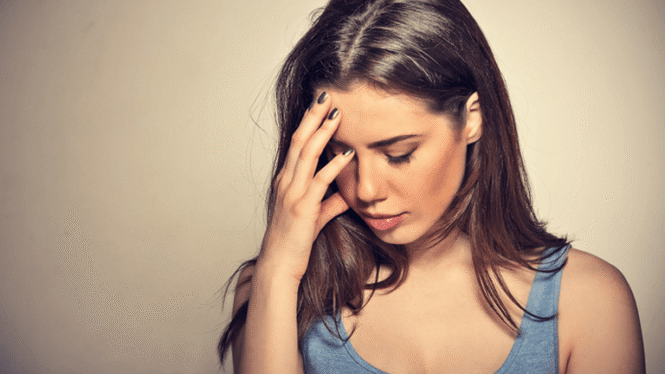
Anxiety is a normal response to stress, but when it becomes frequent or overwhelming it can affect sleep, focus, relationships, and daily life. This post explains what Anxiety is, common triggers, simple Ayurvedic-friendly steps to manage it, and clear signs that you should get professional help. Read on for short, practical guidance you can start today.
What is Anxiety?
Anxiety is the body and mind’s reaction to perceived danger or pressure. It can show as worry, racing thoughts, a fast heartbeat, trembling, or restlessness. Occasional anxiety is normal. When these feelings become persistent, intense, or interfere with work and relationships, they may need targeted care.
Common triggers of Anxiety
- Ongoing stress at work, studies, or home.
- Sleep problems and irregular routines.
- High caffeine or stimulant intake.
- Financial, relationship, or health worries.
- Excessive screen time and information overload.
- Underlying health conditions (thyroid issues, low blood sugar).
Recognising triggers helps you plan simple, effective responses.
Signs Anxiety is becoming a problem
Watch for these red flags:
- Constant worry that’s hard to control.
- Trouble sleeping, waking at night, or poor sleep quality.
- Muscle tension, headaches, or stomach upset.
- Avoiding situations you used to handle.
- Panic attacks — sudden intense fear with physical symptoms.
If you see these signs, it’s time to get support rather than wait.

Ayurvedic perspective on Anxiety
In Ayurveda, anxiety is often linked to an imbalance in Vata (air/movement) and aggravation of Pitta (heat/overactivity) in the mind. Treatment focuses on grounding the nervous system, improving digestion (Agni), and restoring sleep and metabolic balance. The goal is to calm the mind (Manas) and strengthen resilience (Ojas).
Quick daily steps to ease Anxiety (doable today)
These are gentle, evidence-aligned practices that match Ayurvedic principles and modern self-care.
- Breathe for two minutes — deep belly breathing or 4-6 slow breaths per minute calms the nervous system.
- Short movement — a 15–20 minute walk or gentle yoga lowers stress hormones and clears the mind.
- Regular sleep routine — bedtime and wake time aligned every day helps reset your mood.
- Cut back caffeine and screens in the evening — reduce arousal that fuels anxiety.
- Warm oil self-massage (Abhyanga) — a short, gentle massage with warm sesame oil relaxes Vata and eases tension.
- Mindful breaks — 3–5 minute grounding breaks during work to notice breath and posture.
- Soothing foods — warm, cooked meals, milk with a pinch of turmeric or saffron, nuts, and whole grains support calming and energy.
Start with one or two and build a steady routine.
Herbal & Ayurvedic supports (use under guidance)
- Ashwagandha — adaptogenic herb that supports stress resilience.
- Brahmi — traditionally used to calm the mind and improve clarity.
- Jatamansi — useful for sleep and nervous system support.
Always consult an Ayurvedic practitioner before starting herbs, especially if you take other medications.
Therapies that help
- Counselling or cognitive behavioural therapy (CBT) — effective for persistent anxiety.
- Yoga and pranayama — regular practice lowers baseline anxiety.
- Massage, steam, and warm fomentation — ease physical tension that feeds worry.
Combining therapies often gives the best outcome.
When to seek professional help
Contact a clinician if:
- Anxiety is severe, constant, or disabling.
- You have panic attacks, suicidal thoughts, or self-harm urges.
- Anxiety is linked to new medical symptoms (chest pain, fainting).
A trained Ayurvedic doctor can assess your dosha pattern and recommend herbs, therapies, and lifestyle changes tailored to you.
For a personalised Ayurvedic consultation with expert guidance, book an appointment at Vedic Upchar:
👉 https://vedicupchar.com/doctor-consultation/
Practical coping plan (3 steps to start today)
- Set a 10-minute breathing + walk routine after lunch.
- Replace one cup of coffee with warm milk or herbal tea in the afternoon.
- Do a nightly 5-minute oil scalp massage before bed to improve sleep.
Small, consistent changes reduce the intensity and frequency of anxiety over weeks.
Final thoughts
Anxiety is treatable. With small daily practices, suitable herbs under supervision, and timely professional help, most people regain balance and confidence. If anxiety is affecting your work, sleep, or relationships, reach out — early support prevents escalation.